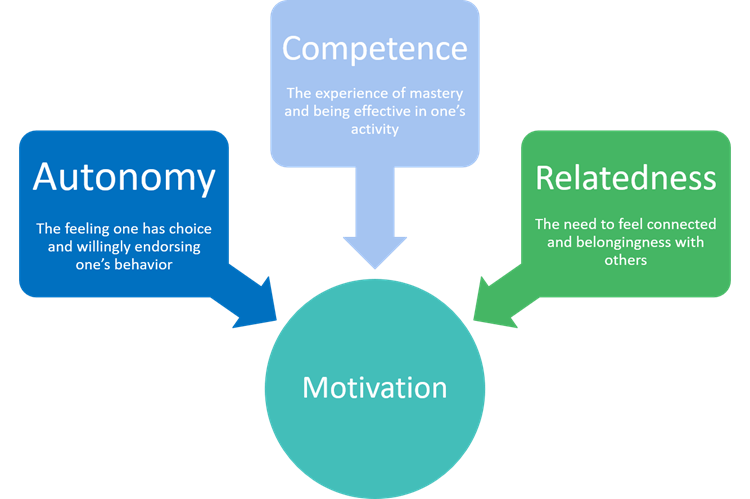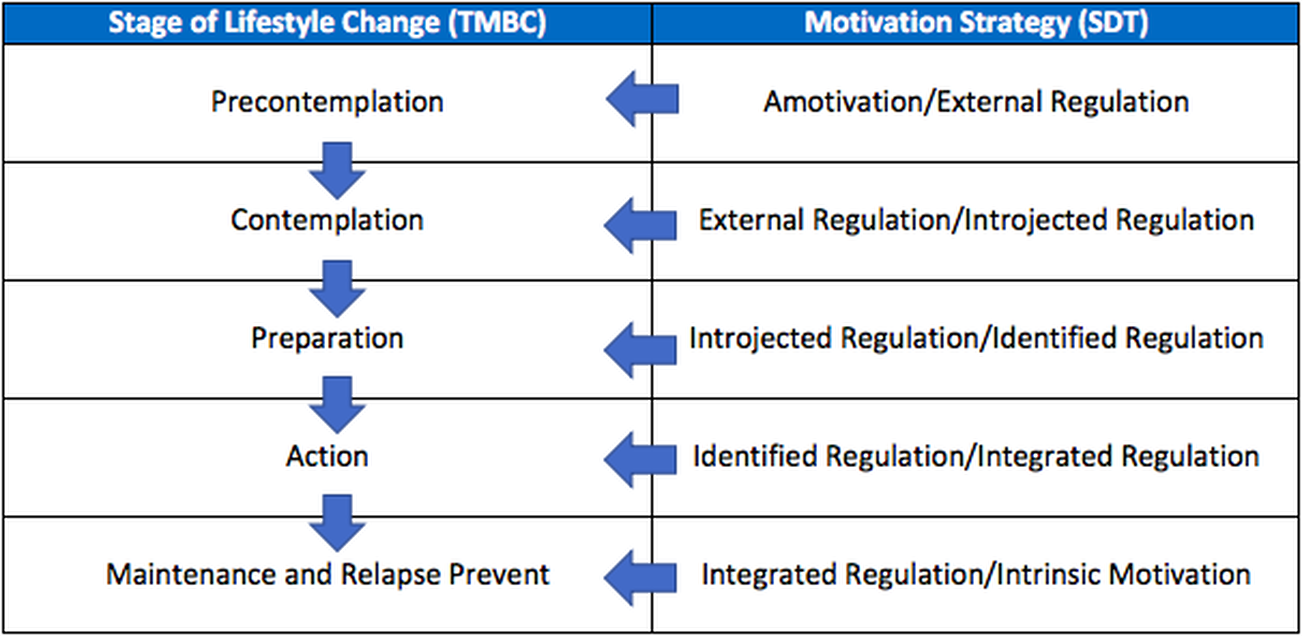Behavior Change and Motivation
Transtheoretical Model of Behavior Change
In the transtheoretical model, change is a "process involving progress through a series of stages." As a person continues through a program, they progress through the six steps of the model. These six steps include:
Step One: Precontemplation ("not ready") – "People are not intending to take action in the foreseeable future, and can be unaware that their behavior is problematic"
Step Two: Contemplation ("getting ready") – "People are beginning to recognize that their behavior is problematic, and start to look at the pros and cons of their continued actions"
Step Three: Preparation ("ready") – "People are intending to take action in the immediate future, and may begin taking small steps toward behavior change"
Step Four: Action – "People have made specific overt modifications in modifying their problem behavior or in acquiring new healthy behaviors"
Step Five: Maintenance – "People have been able to sustain action for at least six months and are working to prevent relapse"
Step Six: Termination – "Individuals have zero temptation and they are sure they will not return to their old unhealthy habit as a way of coping"
In addition, the researchers conceptualized "Relapse" (recycling) which is not a stage in itself but rather the "return from Action or Maintenance to an earlier stage
Step One: Precontemplation ("not ready") – "People are not intending to take action in the foreseeable future, and can be unaware that their behavior is problematic"
Step Two: Contemplation ("getting ready") – "People are beginning to recognize that their behavior is problematic, and start to look at the pros and cons of their continued actions"
Step Three: Preparation ("ready") – "People are intending to take action in the immediate future, and may begin taking small steps toward behavior change"
Step Four: Action – "People have made specific overt modifications in modifying their problem behavior or in acquiring new healthy behaviors"
Step Five: Maintenance – "People have been able to sustain action for at least six months and are working to prevent relapse"
Step Six: Termination – "Individuals have zero temptation and they are sure they will not return to their old unhealthy habit as a way of coping"
In addition, the researchers conceptualized "Relapse" (recycling) which is not a stage in itself but rather the "return from Action or Maintenance to an earlier stage


